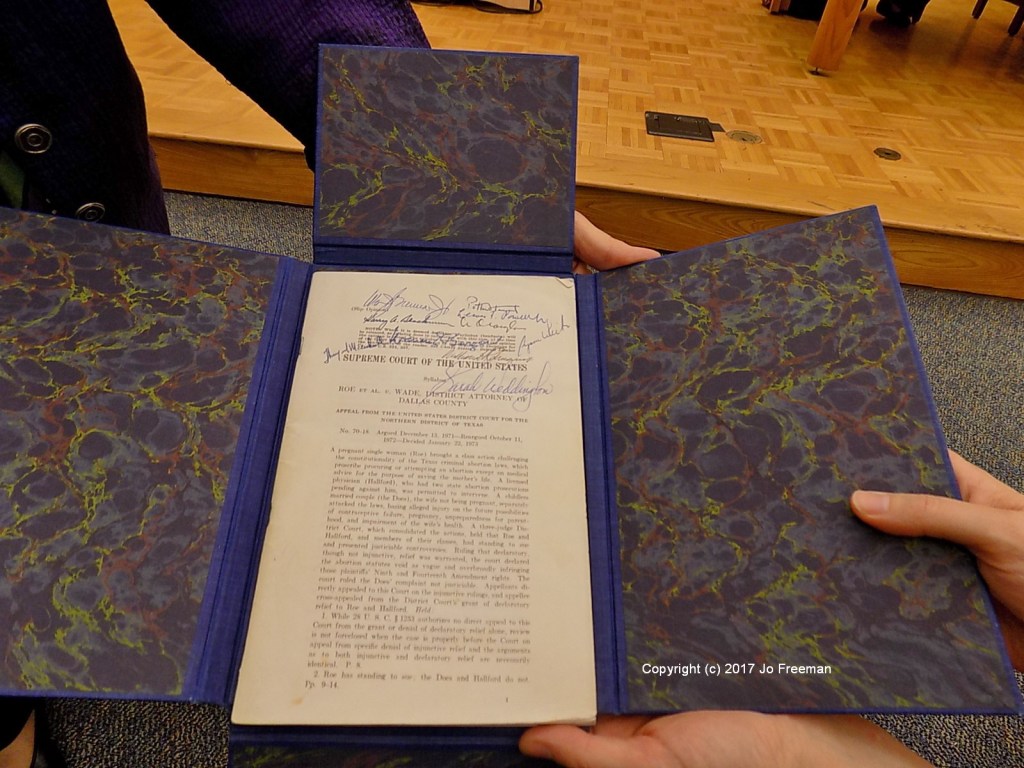On November 6 and 7, 2017, a few hundred people gathered at the University of Houston to celebrate the 40th anniversary of that conference. It was not sponsored by the federal government, though some would argue that today’s federal government made it necessary.
Organized primarily by UH professors Nancy Beck Young and Leandra Zarnow, the conference brought back many of those who had attended the 1977 conference, and introduced them to today’s young feminists. The returning 1977 participants were given blue ribbons to wear to make them easy to identify.
While Houston 40 was primarily an academic conference with panels, papers and lectures, there were some more colorful associated events.
On November 5, Houston Women’s March held a #MeToo rally and march to talk about sexual harassment. The roughly one hundred participants were observed by six members of the Houston police department and nine ACLU legal observers.

The women wearing red capes symbolize the Handmaids from The Handmaid’s Tale.


This was followed by a community dinner to discuss how the planks of the 1977 conference have fared and what legislation is still needed.


On the table are leaflets from the 1977 conference.

The conference showcased both old and new. One room was a “sisterhood salon” where photos from the 1977 conference were flashed on the wall. Panelists talked about what happened then, and since.
Featured were the authors of two books on the 1977 conference that were published this year.
Marjorie Spruill gave the lunch speech on Nov. 6 about Divided We Stand: The Battle Over Women’s Rights and Family Values That Polarized American Politics (Bloomsbury USA)

Shelah Leader and Patricia Hyatt talked about their book American Women on the Move: The Inside Story of the National Women’s Conference, (Lexington Books 2016) at an afternoon plenary.

Sarah Weddington and Sissy Farenthold closed the conference. The former was the lead attorney in Roe v. Wade, the 1973 Supreme Court decision which legalized abortion. Weddington is the youngest lawyer to argue a successful case before the Court. She showed the audience a copy of that decision autographed by all of the deciding Justices. Sissy Farenthold served in the Texas House, twice ran for Governor, and was nominated for Vice President in 1972.


















